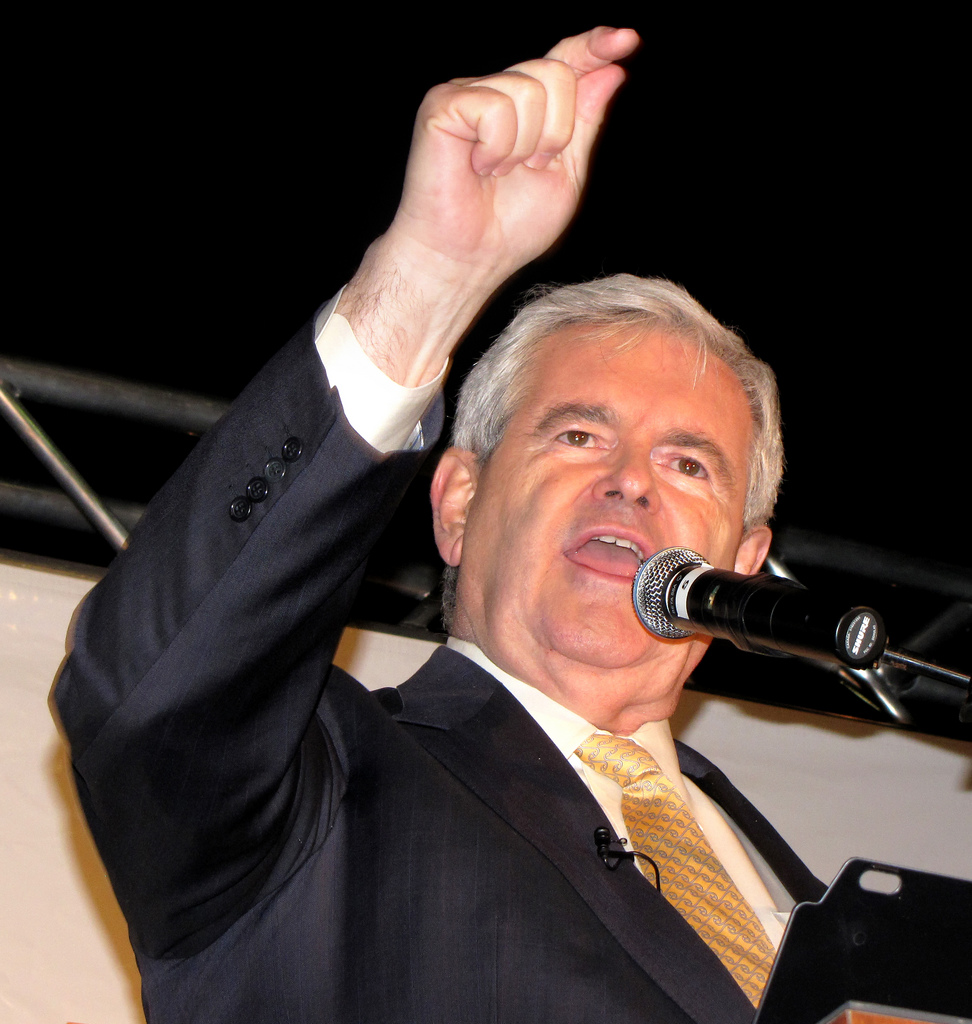Here at the end of the week, I have a few final thoughts on my carbon debate with Steve Everley of American Solutions (see: Monday, Tuesday, Wednesday, Thursday) and Amanda Little’s interview with Newt Gingrich, Steve’s boss.
A recent report from the International Energy Agency revealed a stunning fact: Worldwide, fossil-fuel energy corporations receive $550 billion a year in subsidies. Another report found that between 2002 and 2008, American taxpayers alone lavished $72.5 billion on fossil-fuel subsidies, and that’s not counting implicit subsidies like military deployments to defend energy supplies, health costs from respiratory and circulatory ailments caused by fuel combustion, ecological damage like in the Gulf of Mexico, and damage from climate change. This massive interference in global energy markets by heavy-handed government bureaucrats ought to offend proponents of free-market capitalism or small-government conservatism. It’s tantamount to corporate socialism.
Yet Gingrich and his acolyte defend these subsidies. Why? Says Gingrich, “a low-cost energy regime is essential to our country.” That is one doozy of a non-sequitur. Surely a conservative ought to know that money government spends on energy subsidies is taken from elsewhere in the economy. The externalized health and ecological costs of fossil fuels are paid by the public, with money taken from elsewhere in the economy. Fossil-fuel subsidies don’t reduce costs, they shift costs. The burden is moved from energy companies to the public. The result is what we have today: energy that looks cheap because most of its costs are hidden from view.
Economist Friedrich Hayek — beloved of conservatives — taught that prices as set by a free market are our way of communicating with one another, conveying our knowledge and preferences. Collectively, through our transactions, we solve the economic calculation problem of how to optimally balance competing desires and willingness to pay. When prices are distorted by government interference, our communication is distorted and our balance is off. The market is broken.
Even as he defends fossil-fuel subsidies, Gingrich and his acolyte propose a whole new raft of subsidies (disguised, thinly, as tax credits and prizes). Everley says, “Incentives aren’t the same thing as picking winners because, for example, prizes for a national goal (such as a 100 mpg car) allow everyone to innovate, regardless of industry or status.” But that’s not true. The public-transit industry can’t compete to make a 100 mpg car. Who says cars are our national priority, as opposed to walkable cities or intercity rail? Presumably cars are another one of those things government bureaucrats have determined is “essential to our country.”
There is no plausible interpretation under which Gingrich could be characterized as pro-market. He is pro-business, or more precisely, pro-some-businesses, which is very different — the opposite, even — of pro-market. If you want to make sense of his various words and actions, no ideological or economic principle will help. It’s pure instrumentalism: the exercise of political influence in service of protecting energy incumbents. Gingrich is a paid advocate for corporate interests that benefit from the status quo. One doesn’t really have an argument with a person like that. Arguments are based on principles and evidence. One simply beats, or is beaten by, such a person.



